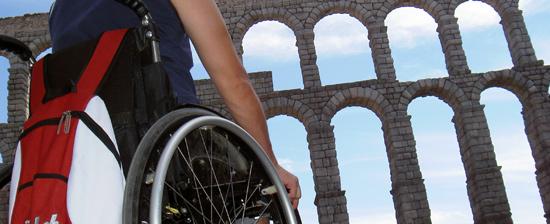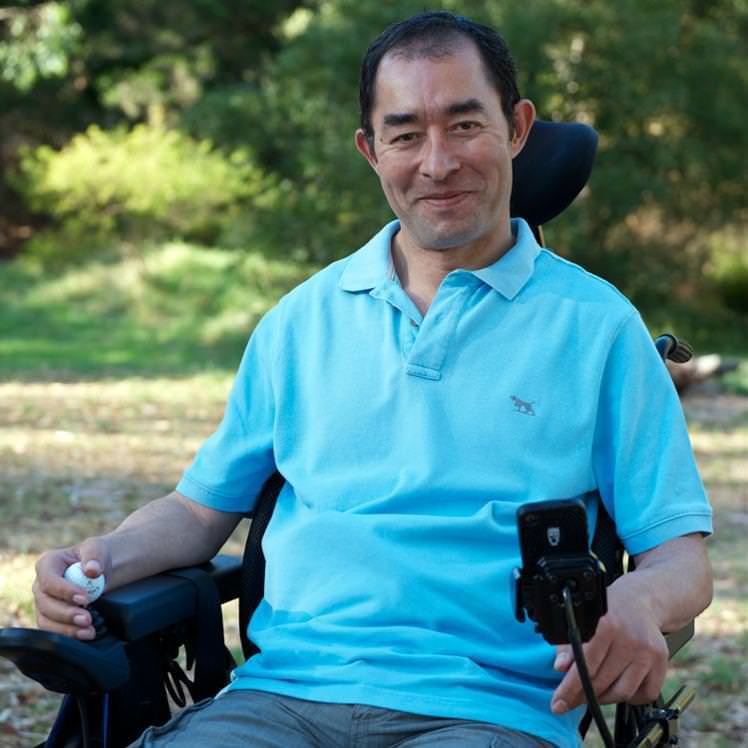Accessible travel for all
Lonely Planet’s Martin Heng shares how to make travelling less frustrating for seniors and those with physical disabilities.
Travelling is supposed to be fun. However, if one is disabled, it can be a frustrating experience. Ageless Online chats with 52-year-old Martin Heng, Lonely Planet’s travel accessibility manager, on this issue. Based in Melbourne, Martin was hit by a car while cycling five years ago and now uses a walking frame or a wheelchair to get around.
We ask him which countries are more accessible and his pet peeve of accessible information:
What does your job entail as a travel accessibility manager? How often do you travel in a year?
The role was created for me when Lonely Planet was bought and restructured in 2014. I’m basically a one-man team! My work is self-directed and self-motivated, but much of what I do is networking through LinkedIn and Twitter. I also created a Google + community, Travel for All, which now has more than 2,000 members, where people can share their experiences and services they offer.
Even though I work for the guide publisher and provider of travel information, I don’t often travel for work – in the 15 years I’ve worked for Lonely Planet, I’ve only been sent on two trips! Last year, however, I was invited to speak at the inaugural global summit on accessible tourism, Destinations for All in Montréal, and managed to persuade Lonely Planet to let me travel around the world for two months on the way there and back. I stopped in Singapore, where I still have a lot of family, India, UK, Spain, Canada and US.
Can you rate from a scale of one to five (five being the best) whether the world today is more accessible to travellers with physical disabilities and seniors?
It would be hard to give a numerical rating, but things certainly are increasingly easier for people with access issues to travel. In many cases, this is a result of legislation, particularly in developed countries, but also due to international treaties, particularly the Convention on the Rights of Persons with Disabilities (CRPD). The other major factor in making the world more accessible, of course, is technological advances in all fields, whether it be smartphone technology or 3-D printing.
What more do you feel countries can do to make things better?
Change can come from the top-down and bottom-up. At the top of the chain, national and regional tourism bodies need to devote time and resources to promoting accessible travel. The more progressive tourism bodies – in the UK, Germany and Spain, for example – are recognising the huge market potential arising from the greying of the population, and in particular the retirement of an affluent baby boomer generation. For example, Visit England has published a study recently putting the value of the so-called purple pound at more than £12 billion (over S$24 billion).
At the bottom, businesses often comply with regulations, for example, building codes. But, access is not simply physical – it’s also important to be able to access information. Businesses need to learn that having accessibility information on their websites is critical in attracting new business. It’s imperative to have foreknowledge, to know before you go, and this is often difficult given the level of information available on hotel websites or booking sites such as TripAdvisor, Expedia, Hotels.com and Booking.com. They need to cater to this market more directly and more fully.
What about cruises? Are they accessible to those with physical disabilities?
Cruises have long been the go-to option for people with access issues, whether they be people with a disability or mobility-impaired seniors. Cruise ships are generally well set up for these groups and are a safe option since the environment is small and fairly well-controlled.

Spain is one of the top countries mentioned by Martin in terms accessibility. (Photo courtesy: Tourspain)
What five countries are more accessible than others?
I would rate Singapore very highly following my visit last year. Other countries at the top of the list would be US, Germany (http://www.germany.travel/en/ms/barrier-free-germany/start/barrier-free-germany.html), Spain (http://www.spain.info/en/informacion-practica/turismo-accesible/), Austria (http://www.austria.info/uk/how-to-get-there/holidays-without-barriers-1135227.html) and Australia.
What advice can you give to travellers with physical disabilities who might be afraid to travel?
Plan well in advance, make sure that the accommodation you want suits your needs by speaking directly to them on the telephone and, if necessary, getting them to send you photographs of the room and bathroom. For those with particular medical conditions, it is often useful to access the resources of the relevant disabled people’s organisation in the destination. Other than that, just go! You’ll be amazed how helpful people are when you encounter problems.
** Some of the countries mentioned by Martin and information on accessibility on their tourism websites:
• Germany – www.germany.travel/en/ms/barrier-free-germany/start/barrier-free-germany.html
• Spain – www.spain.info/en/informacion-practica/turismo-accesible/
• Austria – www.austria.info/uk/how-to-get-there/holidays-without-barriers-1135227.html


0 Comments